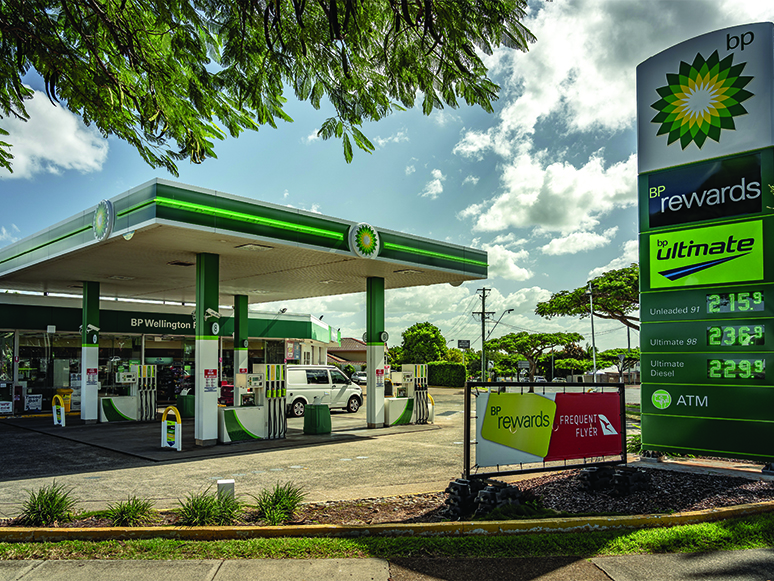logo


19th Dec, 2022

As inflationary pressures start to bite, many businesses may be seeking rental deferrals or variations from their landlords to help them through this tough period. However, if your business has been lucky enough to receive a waiver, deferral or variation of rent you need to be aware that there may be income tax, GST and perhaps even CGT consequences, depending on a number of factors.
Where your business owes rent for a past occupancy period which is later waived or released by the landlord, including under bankruptcy or insolvency law, if you have already claimed a deduction for the rent on the business tax return, you’ll still be entitled to that deduction. However, the unpaid amount will be considered a debt forgiveness. This means the amount won’t need to be included in the assessable income of the business but may be offset against amounts that could otherwise be claimed as deductions.
For businesses that have already paid rent for a past occupancy period and claimed a deduction, any amounts waived or refunded will need to be included as assessable income.
Where your landlord waives rent related to a future period of occupancy, the business won’t be entitled to a deduction for the amount of rent that would have been paid. The only amount that can be claimed is the amount of rent that the business is required to pay.
For businesses that account for GST on an accruals basis, a waiver or variation of rent payable may lead to GST consequences. If the business has already claimed a GST credit for the rent which is waived or refunded, an increasing adjustment will need to be raised to pay back the credit that was claimed. This needs to be done in the BAS period when the business becomes aware of the waiver or receives a refund.
Deferrals, however, generally don’t need any GST adjustment. Businesses do need to be aware that if their landlord has changed the rental agreement, including timing or amount of scheduled payments, the GST credit that can be claimed will be based on the new agreement. In addition, if your business had claimed a GST credit for a deferred amount which the landlord later writes off as a bad debt, an increasing adjustment may be required.
Businesses that account for GST on a cash basis need not worry about adjustments, as they can only claim GST on the basis of actual rent paid as shown on a tax invoice.
Rental concessions may also have CGT consequences for your business. This may occur if, for example, your landlord has changed the rental agreement for payment or other consideration from the business or has created a new or additional agreement.
19th Dec, 2022

The Federal Government has showed its hand in terms of potential future changes to the Australian superannuation system. The Assistant Treasurer and Minister for Financial Services, Stephen Jones,
recently outlined two main areas the government will be focusing on. This includes legislating an objective for super (earmarking it specifically for use in retirement), which will then enable conversations around the taxation of super – in particular tax concessions given to high-asset self managed superannuation funds (SMSFs). The second area the government will seek to tackle is performance tests, on which work has already commenced.
From its beginnings in 1992, superannuation collectively has become a juggernaut and has grown to encompass over $3.3 trillion in assets held by an estimated 16 million Australians. That figure makes Australian superannuation the world’s third largest pension pool.
A Bill was previously introduced in 2016 that proposed to enshrine\ the primary objective of the super system in legislation: to provide income in retirement to substitute or supplement the age pension. It would have also required all new Bills relating to super to be accompanied by a statement of compatibility with the objective of the super system. This Bill lapsed ahead of the 2019 election and was never reintroduced.
Having a clear legal objective of super, the government says, will break the vicious cycle of plans to raid super such as drawing on super to pay for housing, HECS or living expenses, which have all been proposed at various stages in the past few years.
The government estimates that there are 32 SMSFs with more than $100 million in assets, with the largest SMSF having over $400 million in assets. Industry estimates also indicate that the tax concessions on a single $10 million SMSF could support 3.1 full age pensions.With this in mind, the government is looking to have a conversation around the concessional taxation of these high-asset SMSFs.
The other change the government is looking to make will stem from the results of the review into the Your Future, Your Super (YFYS) laws. The YFYS measures were initiated to ostensibly remove “unintended consequences” and keep the focus on “high performance”. A consultation paper has been released and the government has established a technical working group in addition to public submissions and stakeholder consultations.
In order to conduct the review to keep the focus on high performance, the government paused the extension of the existing Australian Prudential Regulation Authority (APRA) performance test to Choice super products for 12 months. The performance test therefore currently only applies to MySuper products, which represent around $13.7 million accounts. Super members in other types of products will not have access to the same independent APRA performance analysis unless the consultation concludes they should.
According to Mr Jones, “[t]he performance tests, conducted by APRA, must and will continue. Trustees need to be held to account because it is about ‘Your Future’. We also need to ensure members have meaningful information so that they can hold their funds to account and make informed decisions about their retirement.” Hence, it appears that the performance tests will continue in one form or another into the future, perhaps with different benchmarks.
01st May, 2022

For many businesses, the line between employees and contractors is becoming increasingly blurred, partly due to the rise of the gig economy. However, businesses should be careful, as incorrectly classifying employees as contractors may be illegal and expose the business to various penalties and charges.
Recently, the High Court handed down a significant decision in a case involving the distinction between employees and contractors. In the case, a labourer had signed an Administrative Services Agreement(ASA) with a labour hire company to work as a “selfemployed contractor” on various construction sites.
The Full Federal Court had initially held that the labourer was an independent contractor after applying a “multifactorial” approach by reference to the terms of the ASA, among other things. The High Court, however, overturned that decision and held that the labourer was an employee of the labour hire company.
The High Court held that the critical question was whether the supposed employee performed work while working in the business of the engaging entity. That is, whether the worker performed their work in the labour hire firm’s business or in an enterprise or business of their own.
As a result of the decision, the ATO has said it will review relevant rulings, including super guarantee rulings on work arranged by intermediaries and who is an employee, as well as income tax rulings in the areas of PAYG withholding and the identification of employer for tax treaties.
01st May, 2022

FBT is generally seen as a relatively slow-moving and quiet area of tax law. But Budget day this year saw some movement at the FBT station, specifically regarding COVID-19 tests provided to staff, and also car parking benefits.
The 2022–2023 Federal Budget included a measure, now passed into law, to make costs for taking a COVID-19 test to attend their workplace tax-deductible for individuals from 1 July 2021.
COVID-19 tests, including rapid antigen tests (RATs), provided by employers to employees are considered benefits under the FBT regime.
However, by allowing for an individual tax deduction, the new measure also allows for the operation of the “otherwise deductible” rule to reduce the taxable value of the benefit to zero. The result? By introducing a specific individual income tax deduction, employers would also not have to pay FBT.
Neat solution. Well, apart from the catch: employeelevel declarations could be required when the provision of a RAT is a property fringe benefit (that is, legal ownership of the item passes from the employer to the employee).
Where a RAT is provided as an expense reimbursement or residual benefit, an employer-level declaration is available (that is, one declaration signed by the public officer on behalf of each employing entity lodging an FBT return to declare that there is no private use).
In case collecting hundreds or thousands of employeelevel paper declarations is not how you’d like to spend
your time, we see three options at this stage:
As a reminder:
The scope of the term “commercial parking station” is therefore fundamental to determining if an employer has taxable car parking benefits.
Broadly, a commercial parking station is one where car parking spaces are, for payment of a fee, available in the ordinary course of business to members of the public for all-day parking.
The ATO issued a ruling in 2021 that no longer applied the interpretation that car parking facilities with a purpose other than providing all-day parking (usually charging significantly higher rates) are not commercial parking stations. This was to apply from 1 April 2022.
In effect, this would bring facilities like shopping centre car parks and hospital car parks into the definition of a “commercial parking station”. For employers with only that type of parking within a one-kilometre radius, the consequences were significant, potentially bringing previously non-taxable employer-provided car parking within the scope of FBT.
The Federal Government has announced it will be undertaking consultation with the intent of restoring the previously understood application of FBT to car parking fringe benefits, which is closer to the original policy intent of the car parking FBT provisions. The readjusted definition would then apply from 1 April 2022 instead.
01st May, 2022

The ATO is urging people and businesses to be vigilant following an increase in reports of fake websites offering to provide tax file numbers (TFN) and Australian business numbers (ABN) for a fee, but failing to provide those services.
The fake TFN and ABN services are often advertised on Facebook, Twitter or Instagram. The scammers use the fraudulent websites they advertise to steal both money and personal information.
The ATO is also still seeing scammers impersonating the ATO, making threats, demanding the payment of fake tax debts or claiming a TFN has been “suspended” due to fraud.
In 2021, more than 50,000 people reported various ATO impersonation scams, with victims losing a total of more than $800,000.
Tips to protect yourself from scammers
01st May, 2022

The uncertainty around availability of fuel has seen fuel prices soar across Australia. The 2022–2023 Federal Budget proposed an answer for this by way of a temporary (six-month) reduction to fuel excise.
The six-month reduction is now law, and will end at midnight on 28 September 2022.
For petrol and diesel, this means an excise reduction from 44.2 to 22.1 cents per litre, which is already being felt by users at the pump. But who will actually benefit from this Budget promise and what does it mean for businesses claiming fuel tax credits (FTCs)?
Individuals:
Businesses: